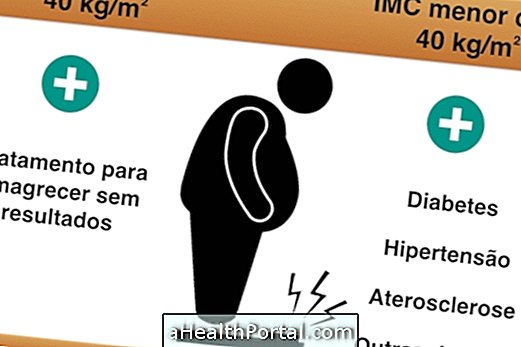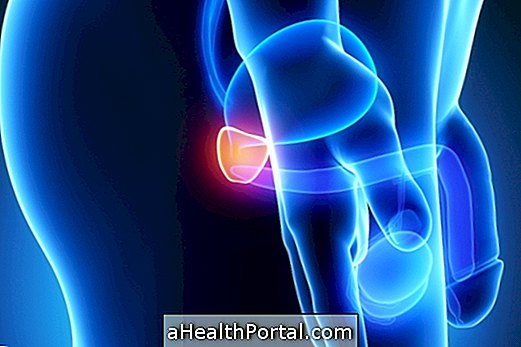Bariatric surgery is usually indicated for people with grade 2 obesity who did not show results after several months of treatment with adequate diet and practice of regular exercise.
In this way, this surgery is usually only indicated when there is no other form of treatment available and is usually done in people aged between 16 and 65, who have:
- BMI greater than 40 kg / m 2, without weight loss even with proven medical and nutritional monitoring.
- BMI less than 40 kg / m 2 and presence of other diseases in severe stages, such as high blood pressure, uncontrolled diabetes, liver fat and high cholesterol.
This is a very invasive operation, since most of the time a part of the stomach or intestine is removed, in order to decrease the amount of calories absorbed and to promote weight loss.

Advantages of Bariatric Surgery
In addition to significant weight loss, bariatric surgery also brings benefits related to diseases associated with obesity, with improvement and cure of diseases such as:
- Arterial hypertension;
- Cardiac insufficiency;
- Respiratory insufficiency;
- Asthma;
- Diabetes;
- High cholesterol.
This operation also has social and psychological advantages, such as reducing the risk of depression and increasing self-esteem, social interaction and physical mobility.
Types of Bariatric Surgery
The type of operation to be used should be chosen together with the physician, according to the clinical conditions and preferences of the patient. These surgeries can be done with the normal cut in the abdomen or by videolaparoscopy, where only minor cuts are made during the operation:
1. Gastric band
This is the type of bariatric surgery less invasive and consists of putting a ring around the stomach, so that it decreases in size, contributing to a lower intake of food and calories.
Typically, this type of surgery presents fewer health risks and has a faster recovery time, but its results may be less satisfactory than the other techniques. Learn more about gastric band placement.
Gastric bypass
Bypass is an invasive surgery in which the doctor removes a large part of the stomach and then attaches the beginning of the intestine to the small remaining portion of the stomach, decreasing the space available for food and reducing the amount of calories absorbed.
This type of surgery has great results, allowing to lose up to 70% of the initial weight, however also has more risks and a slower recovery. Understand better how gastric bypass is done.


3. Vertical Gastrectomy
Unlike gastric bypass, in this type of surgery the doctor maintains the natural connection of the stomach to the intestine, removing only part of the stomach to make it smaller than normal, reducing the amount of calories ingested.
This surgery has less risks than bypass, but also has less satisfactory results, allowing to lose about 40% of the initial weight, being similar to the gastric band. Here's how this type of surgery is done.
4. Biliopancreatic derivation
In this surgery, part of the stomach and most of the small intestine are removed, which are the main region where nutrient absorption occurs. In this way, a large portion of the food is not digested or absorbed, reducing the amount of calories in the diet.
Risks of Bariatric Surgery
The risks of bariatric surgery are mainly related to the quantity and severity of diseases associated with obesity, with the main complications being:
- Pulmonary embolism, which is the clogging of a blood vessel in the lung, causing severe pain and difficulty breathing;
- Internal bleeding at the operation site;
- Fistulas, which are small pockets that form at the internal points of the operated region;
- Vomiting, diarrhea and bloody stools.
Usually these complications arise during the period of hospitalization and are quickly resolved by the medical staff. However, depending on the severity of the symptoms, it may be necessary to perform a new operation to correct the problem.
In addition, it is common that after bariatric surgery patients present nutritional complications such as anemia, folic acid deficiency, calcium and vitamin B12, and malnutrition may also occur in more severe cases.






















